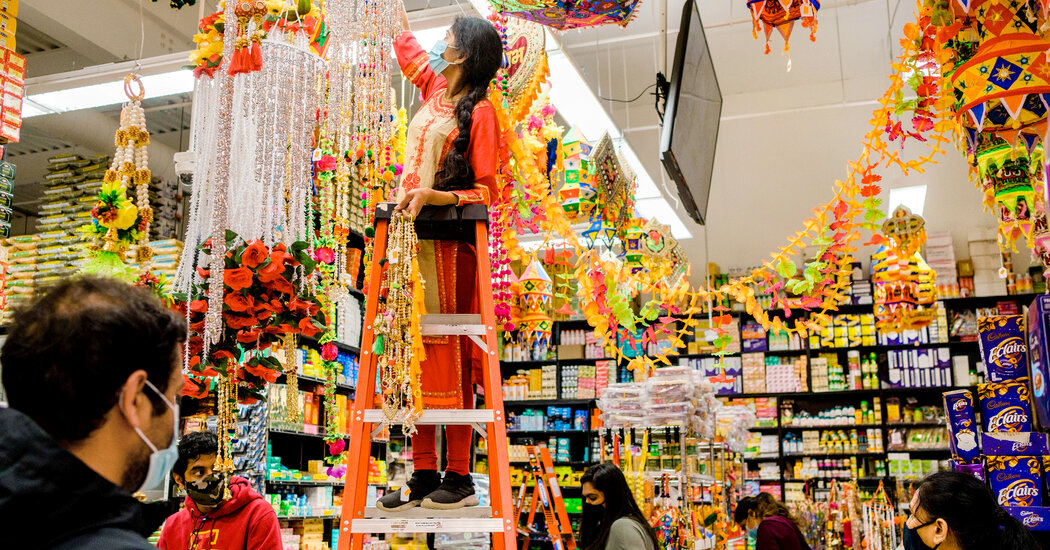To Celebrate Diwali Is to Celebrate the Light
[Race/Related is available as a newsletter. Sign up here to get it delivered to your inbox.]
Diwali became my American holiday.
I was raised in a Bengali Hindu family. For us, to celebrate Diwali is to worship the goddess, Kali. The mother goddess, with dark skin and wild hair and a necklace of skulls (actually bad-dudes-whom-she-has-vanquished skulls), Kali is the figure of the woman you do not want to mess with. She is armed, and she is ferocious, except to those who worship her. (I know a few women like that. I worship them, too.)
In my bedroom hangs a painting of Kali, made by an unnamed woman artist from the Madhubani region of eastern India, gifted to me by a friend more than 20 years ago.
I tell you this because Diwali, which may be the only Hindu holiday you’ve heard of, means different things to different communities.
If your family comes from North India, your Diwali story lifts a page from the epic tale of Ramayana. It marks the victorious return of its royal protagonist, Rama, after he defeats a shrewd rival from the South. The people of his kingdom light oil lamps — diyas — to guide him back home.
If your family is from the South, Diwali plucks from the other great epic, Mahabharata, telling the story of Krishna, defeating a different greedy tyrant altogether. It is celebrated as Divali in the Caribbean, Deepavali in Sri Lanka, Tihar in Nepal.
Everywhere we celebrate, we light a lamp.
For me, as an Indian-American, raising an Indian-American child, Diwali is distilled to its essence. Diwali is a celebration of light. It comes on the darkest night of the lunar cycle. It marks the triumph of good over evil, justice over tyranny, knowledge over ignorance. It reminds me that we can help one another get through the darkest times.
Diwali comes at an especially grim time in our country. On Friday, the United States added more than 177,000 new coronavirus cases, another record in a week of records. And the sitting president has refused to concede last week’s election, despite his decisive loss.
On Saturday afternoon, my daughter and I will put on our masks and ride the bus to our friends’ garden in Brooklyn, armed with snacks and a bottle of Other People’s Pinot, from Maison Noir. Our host has warned me not to bring sweets, which are traditionally savored on Diwali, because she’s already stocked up. My daughter has laid out her fanciest salwar kameez. If I feel brave, I’ll wear a sari, with thermals underneath because I’m always cold.
We will sit outside, seven of us, at a safe distance from each other. Our children will light the diyas, so that we may banish illness and ignorance, so that we may restore justice.
On a dark evening, our children will show us the light.
Sharing is caring 👋 don’t forget to share this post on Twitter !

